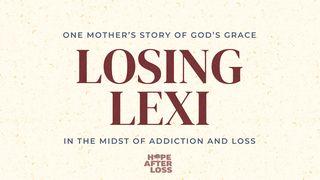Cities Of Refuge: Refined By GraceSample

Not only were the six Cities of Refuge distributed throughout the Land of Israel, but the other forty-two cities designated for the Levites were as well. Since the tribes were required to allow the Levites to live among them, the priests were in a perfect position to minister to all the people by teaching the Law and upholding its perfect balance of justice and mercy. Shiloh, the town in which the Tabernacle (Mishkan) stood, would have been a few days’ journey for the majority of the Hebrews. So, these Levitical cities were easier to reach and therefore perfect gathering places to listen to the reading and teaching of the Word of God and for Levites to adjudicate justice when necessary.
Along with being set aside to serve in the holy sanctuary and offer sacrifices, these men were also given the sacred task of upholding the Law, a duty that could not be taken lightly since the list of curses for ignoring God’s statutes is long and frightening. This weighty responsibility included three parts: knowing the Torah, teaching the Torah, and implementing the Torah. Deuteronomy 11 makes it very clear that Yahweh wants all of his people to know and understand his laws in order to walk out His ways, and that they would be blessed for doing so.
Levites were to enter service in the temple at age 25 or 30, depending on the task. Since we know military age was 20 and that Levites were not allowed to be trained for war, we can assume that these 5-10 years were instead spent learning the Law from their elders and training for their own eventual rotations in the sanctuary. There were likely very few copies, if any, of Moses’s writings at that time so teaching would have been oral and the Torah memorized for the sake of sharing with the people. Later, after the Babylonian Exile, it was expected that boys begin learning Torah at age six and some of them were known to have memorized the entirety of those first five books by age twelve! But, for however long and in depth the training was, it is clear that in order to teach God’s Word properly, they had to have been immersed in it and have it ingrained on their own hearts first (Deut 11:18, Malachi 2:7).
Once they were sufficiently knowledgeable in the ways of the Lord, the Levites were told to teach those ways to all of Israel (Deut 33:10) so that the Hebrews would understand what Yahweh expected of the people that represented him. Therefore, the widespread Levitical cities would have been ideal centers of learning and worship for all those within their territories. The Levites were also called to stand as judges for the people (Ez. 44:24, Deu 21:5), to ensure that the Law was being followed, that all the festivals were being celebrated correctly, and that the Sabbaths were kept holy.
We too have been called to uphold the words of God. 2 Timothy 3:16 says that “All Scripture is God-breathed and is useful for teaching, rebuking, correcting and training in righteousness." So, like the Levites in training, we must spend our time learning, internalizing, and studying the whole of it, from Genesis to Revelations, so we are prepared to teach others in whatever capacity the Lord calls us to do so. Not everyone is gifted at preaching in front of a crowd. Some of us are writers, and some teach through music or other artistic mediums. All of us, however, are called to disciple others, and parents, especially, have a responsibility to constantly instruct their children in His ways and use that instruction to lovingly discipline and guide them (Deut 11:19).
As we study the Word to share it with others, we reap the benefits of hiding it in our own hearts and, in doing so, deepening our understanding of Yahweh, being transformed by His truth, and becoming more like Yeshua, who is the Word of God made flesh (John 1:1).
QUESTIONS TO CONSIDER:
Who has been the most influential teacher of the Word in your own life? How has that person inspired you to share with others? How have you passed on your own knowledge of the Scriptures?
In what ways can you be more intentional in teaching others? If you are a parent, how can you be more consistent in instructing your children in His ways?
Sometimes we all can get a little focused on certain books of the Bible and neglect others. Is there a certain portion of the Word that you have neglected studying? What fears keep you from digging into those books? What steps can you take to remedy this? Spend some time asking the Lord to give you the desire for deeper study and opportunities for sharing His precious Word with others as well.
About this Plan

Best-selling author Connilyn Cossette invites you to join her on this seven-day study inspired by her latest novel, Shelter of the Most High. Through the lens of the Levitical Cities of Refuge and the priests who attended them, we will examine the refining process for those who live in Covenant with Yeshua (Jesus) and be challenged to embrace both the joys and discomforts of being transformed into His likeness.
More
Related plans

Losing Lexi: One Mother's Story of Grace in the Midst of Addiction and Loss

DON’T FIGHT ALONE: How Isolation Keeps Us Stuck in Anxiety and Why Community Helps Us Win Mental Battles

God Is Writing Your Story

The Weight of Love: Reflections on Jesus' Death and Resurrection

Commissioned: Passion to Purpose: Living the Great Commission

Have Faith

Reclaim Easter

Huge Hope: Major Power in the Minor Prophets

From Lament to Hope: Wellbeing and Happiness in the Psalms
